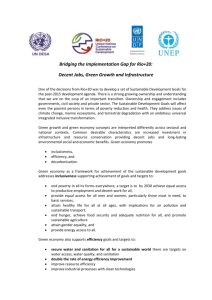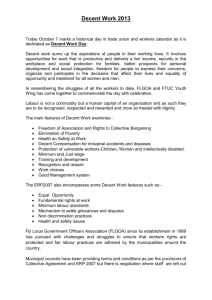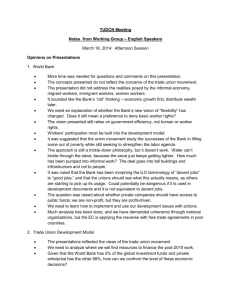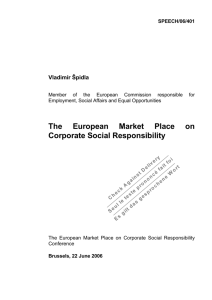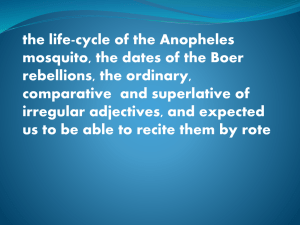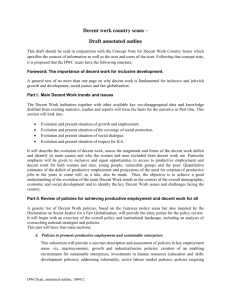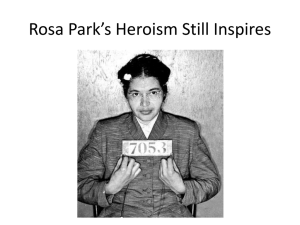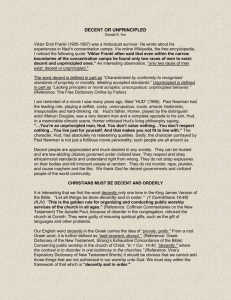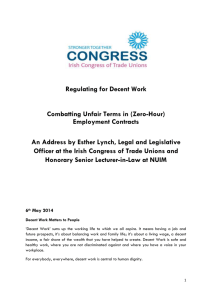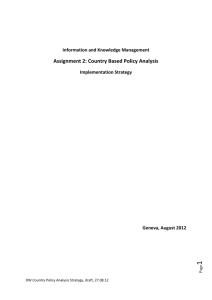Ladies and gentlemen, imagine you have to work 15 hours a day
advertisement
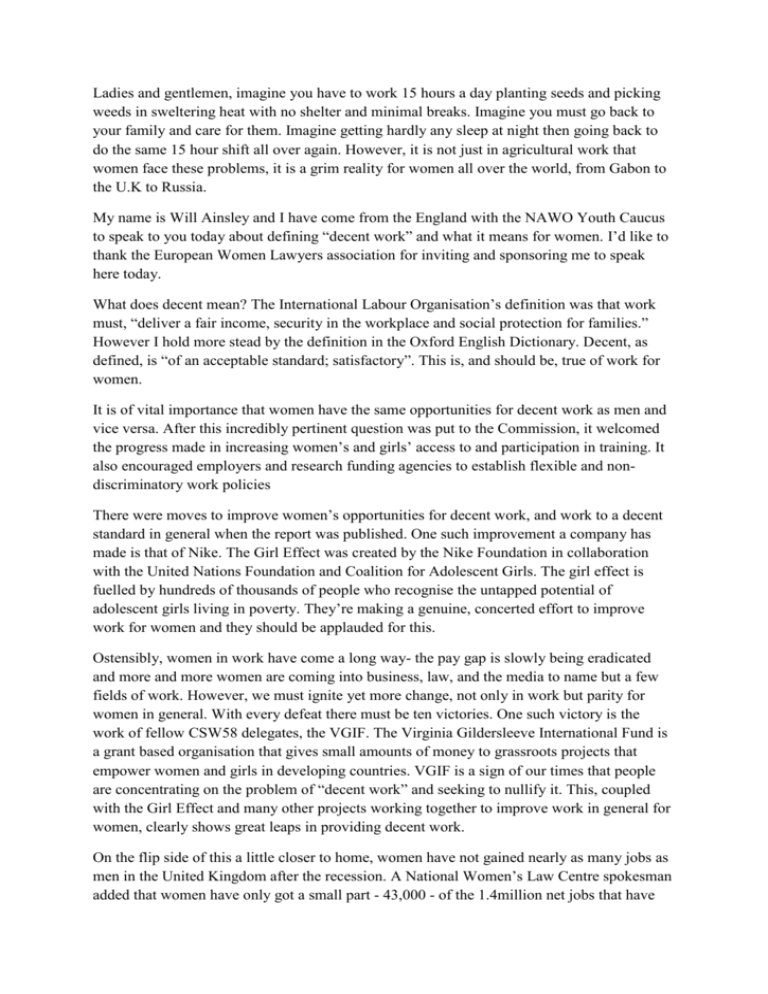
Ladies and gentlemen, imagine you have to work 15 hours a day planting seeds and picking weeds in sweltering heat with no shelter and minimal breaks. Imagine you must go back to your family and care for them. Imagine getting hardly any sleep at night then going back to do the same 15 hour shift all over again. However, it is not just in agricultural work that women face these problems, it is a grim reality for women all over the world, from Gabon to the U.K to Russia. My name is Will Ainsley and I have come from the England with the NAWO Youth Caucus to speak to you today about defining “decent work” and what it means for women. I’d like to thank the European Women Lawyers association for inviting and sponsoring me to speak here today. What does decent mean? The International Labour Organisation’s definition was that work must, “deliver a fair income, security in the workplace and social protection for families.” However I hold more stead by the definition in the Oxford English Dictionary. Decent, as defined, is “of an acceptable standard; satisfactory”. This is, and should be, true of work for women. It is of vital importance that women have the same opportunities for decent work as men and vice versa. After this incredibly pertinent question was put to the Commission, it welcomed the progress made in increasing women’s and girls’ access to and participation in training. It also encouraged employers and research funding agencies to establish flexible and nondiscriminatory work policies There were moves to improve women’s opportunities for decent work, and work to a decent standard in general when the report was published. One such improvement a company has made is that of Nike. The Girl Effect was created by the Nike Foundation in collaboration with the United Nations Foundation and Coalition for Adolescent Girls. The girl effect is fuelled by hundreds of thousands of people who recognise the untapped potential of adolescent girls living in poverty. They’re making a genuine, concerted effort to improve work for women and they should be applauded for this. Ostensibly, women in work have come a long way- the pay gap is slowly being eradicated and more and more women are coming into business, law, and the media to name but a few fields of work. However, we must ignite yet more change, not only in work but parity for women in general. With every defeat there must be ten victories. One such victory is the work of fellow CSW58 delegates, the VGIF. The Virginia Gildersleeve International Fund is a grant based organisation that gives small amounts of money to grassroots projects that empower women and girls in developing countries. VGIF is a sign of our times that people are concentrating on the problem of “decent work” and seeking to nullify it. This, coupled with the Girl Effect and many other projects working together to improve work in general for women, clearly shows great leaps in providing decent work. On the flip side of this a little closer to home, women have not gained nearly as many jobs as men in the United Kingdom after the recession. A National Women’s Law Centre spokesman added that women have only got a small part - 43,000 - of the 1.4million net jobs that have been added since the end of the recession. This deficit is why I feel the need to shed more light on what is a depressingly ill-lit topic. Allegedly, there has been an increase in work, namely in the care and health industries. However this is simply froth and bubbles. If one delves a little deeper, one can see that this increase is merely due to part time jobs and zero hour contracts. A zero hour contract is a contract whereby no hours are certain, it is a contract between the employer and employee. Is this decent? No, I think not. The work will most probably be superficial and the woman or girl will get much less out than they put in. New Zealand, as a country, led the world as the first country where women won the right to vote, through their determined but lawful efforts. Since then, progress towards parity for women at all levels has continued. New Zealand women appear to enjoy the protection afforded through a strong framework giving them full and equal rights. The gender pay gap at 10.1 percent (2013) is the lowest in the Asia-Pacific region. Many celebrate this. On the other hand, it is really a sign of the uphill struggle we face when people are celebrating a pay gap, however small. A pay gap based on gender is not decent. Whilst New Zealand is doing fantastic work to promote women’s freedom to work and earn money, it is clear that even for such an advanced country, work still needs to be done. The issue of, “decent work” is such a germane question as it has its roots in the constantly pertinent issues like equal pay, women’s rights in general. And as well as this, it is a constantly changing and expanding problem which makes finding a solution even harder. To conclude, decent work is of utmost importance in tackling the broader issues like equality in general. We must bring this topic out of the dark and into the light. We must obliterate any misconceptions about decent work that merit discrimination. We must make the phrase “decent work” simply synonymous with work, there should be no variance. Thank you.
